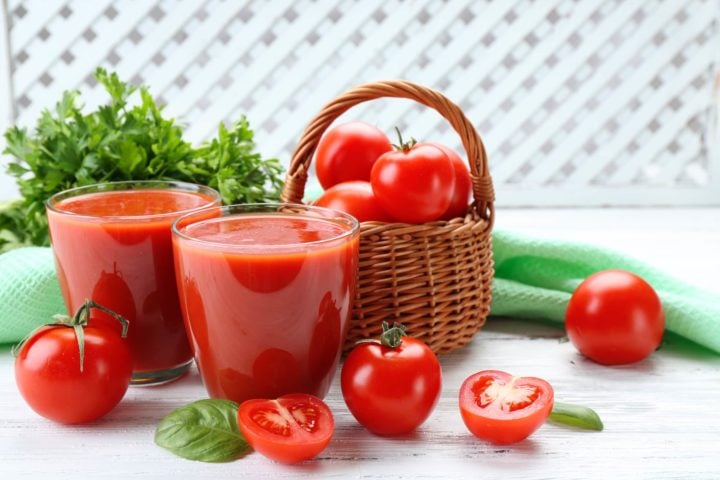
Tomato… a vegetable or a fruit? Before I take you to its wonders, let me introduce it first, as many seem to be confused about its classification.
According to botanists, a fruit is an organism that emerges from a flower's fertilized ovary. This means that tomatoes, squash, pumpkins, cucumbers, peppers, eggplants, maize kernels, bean, and pea pods, as well as apples, pears, peaches, apricots, melons, and mangos, are all fruits. That's what science says.
But as far as cooking is concerned, tomatoes are vegetables as they are used along with other ingredients when cooking. So to answer the question, tomatoes are fruits that are used as vegetables. As the famous joke goes, "Knowledge is knowing that tomato is a fruit, but wisdom is knowing not to put it in a fruit salad". So in this article, let me refer to tomatoes as vegetables.
When we think about tomatoes, one might not immediately think of "juicing" it as it is most commonly used as an ingredient for famous condiments like ketchup. Widely sold as tomato paste and tomato sauce, they are a staple in every cooking recipe, especially in tomato soup. Indeed, tomatoes are one of the most famous vegetables.
But note that being an "ingredient" is only one of the many great things that tomatoes are capable of. This red, round, and flavorful vegetable is packed with vitamins, minerals, and antioxidants that qualify it as a wonder drink.
But no need to skim from page to page just to find all its benefits, because in this article we will try to provide a comprehensive list of tomato juice benefits for you!
Wonders of Lycopene
Whenever tomatoes are mentioned, lycopene immediately comes to mind. Why, you ask? Here's why.
Lycopene (pronounced LIE-co-peen) is a carotenoid nutrient found in some plants. It's related to lutein, and other carotenoid nutrients. Lycopene is a pigment that gives red and pink fruits their color, as well as having antioxidant effects. It's most typically linked with tomatoes and tomato-based goods, which are high in lycopene.
The principal function of lycopene in human health is as an antioxidant. Antioxidants counteract the effects of reactive chemicals known as free radicals, which cause oxidative stress in our bodies. When the volume and activity of free radicals overwhelm the protective effects of antioxidants, chronic illnesses such as cancer and cardiovascular disease can emerge. Lycopene's antioxidant capabilities help to keep free radical activity in check in the body, which may protect against cancer.
The skin of a tomato contains most of that wonderful lycopene. Most phenolics and antioxidants are found in tomato seeds. Tomatoes have been demonstrated to be advantageous to the body because of these three important ingredients. Moreover, studies have shown that more lycopene is juiced out of tomatoes when they undergo processing, such as cooking or boiling or juicing. So what are you waiting for? Let's start juicing!
Top 12 Benefits of Tomato Juice
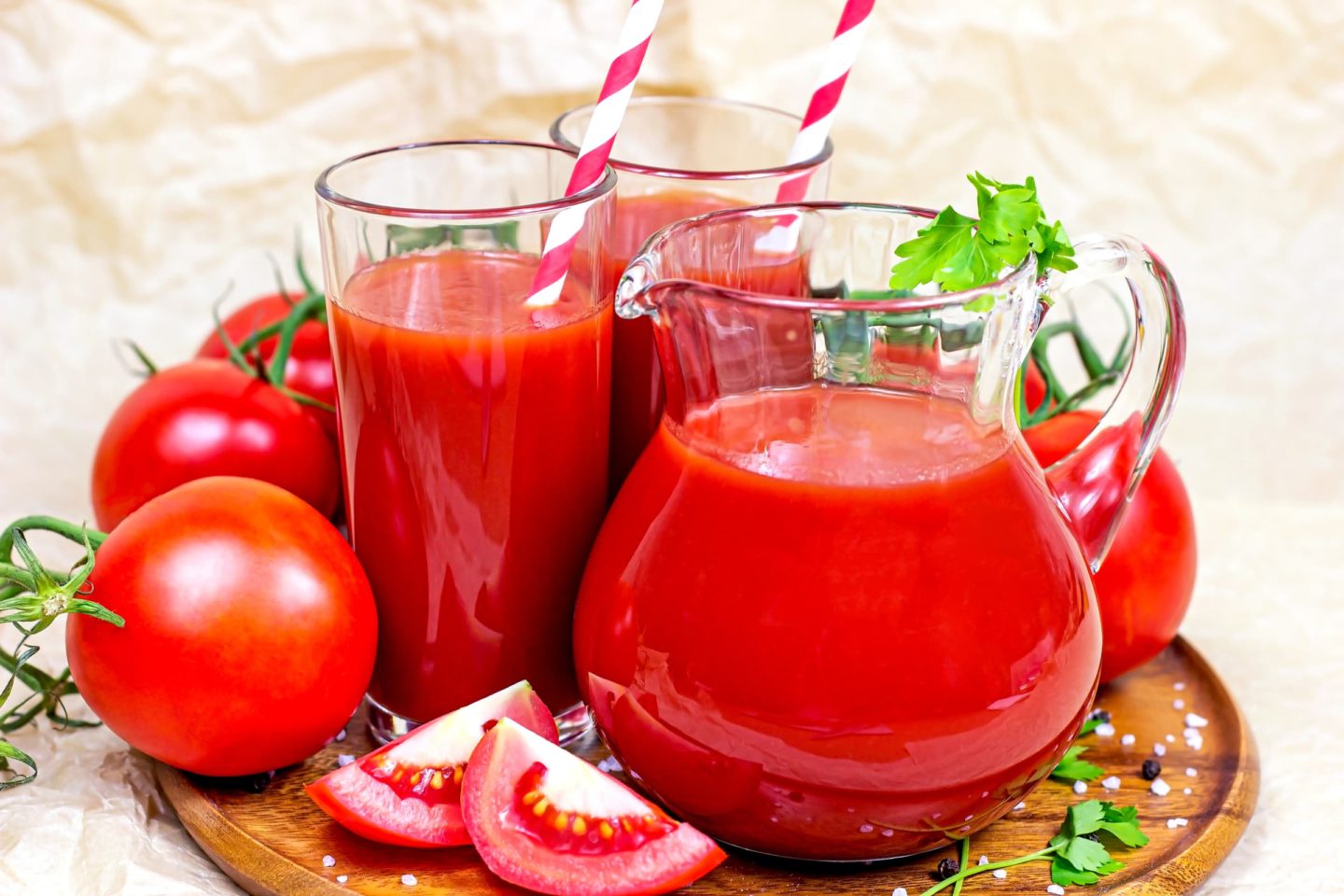
Although store-bought tomato juice is nutritious, drinking raw, freshly juiced tomatoes is far better. Simply said, raw tomato juice beats the canned tomato juice every time! Drinking it raw and unprocessed offers your body all of the essential nutrients it requires to function optimally. It's brimming with phytochemicals, antioxidants, vitamins, and minerals. It's essentially a complete meal in and of itself. All of these nutrients help you stay healthy on the inside while also making your skin look younger. Here are the top benefits of drinking tomato juice.
1. Great Source of Nutrients
Aside from the famous Lycopene, tomatoes are a powerhouse of vitamins, minerals, and other antioxidants.
Vitamins
| Vitamins | Amount | Description |
| Vitamin A | 52.16 mcg (6% DV) | Also known as retinol or retinoic acid, it is a nutrient important to vision, growth, cell division, reproduction, and immunity. |
| Beta-Carotene | 612 mcg | This is a compound that gives vivid yellow, orange, and red coloring to vegetables. |
| Lutein | 136 mcg | It is thought to function as a light filter, protecting the eye tissues from sunlight damage. |
| Thiamin | 0.227 mg (19% DV) | The B1 vitamin allows the body to utilize carbohydrates for energy. |
| Riboflavin | 0.177 mg (14% DV) | Also known as vitamin B2, it aids in the digestion of proteins, lipids, and carbs. It is essential for the body's energy supply to be maintained. |
| Niacin | 1.526 mg (10% DV) | It supports the health of your nervous system, digestive system, and skin. |
| Pyridoxine | 0.159 mg (12% DV) | Also known as vitamin B6, it is important for normal brain development and for keeping the immune system healthy. |
| Folate | 45.36 mcg (11% DV) | It supports healthy cell division and promotes proper fetal growth and development to reduce the risk of birth defects. |
| Ascorbic Acid | 159.0 mg (177% DV) | It is a potent antioxidant and one of the most beneficial vitamins. |
| Vitamin E | 0.73 mg (3% DV) | Helps maintain healthy skin and eyes, and strengthens the body's natural defense against illness and infection. |
| Vitamin K | 5.2 mcg (4% DV) | It is helpful for maintaining our blood clotting and bone health. |
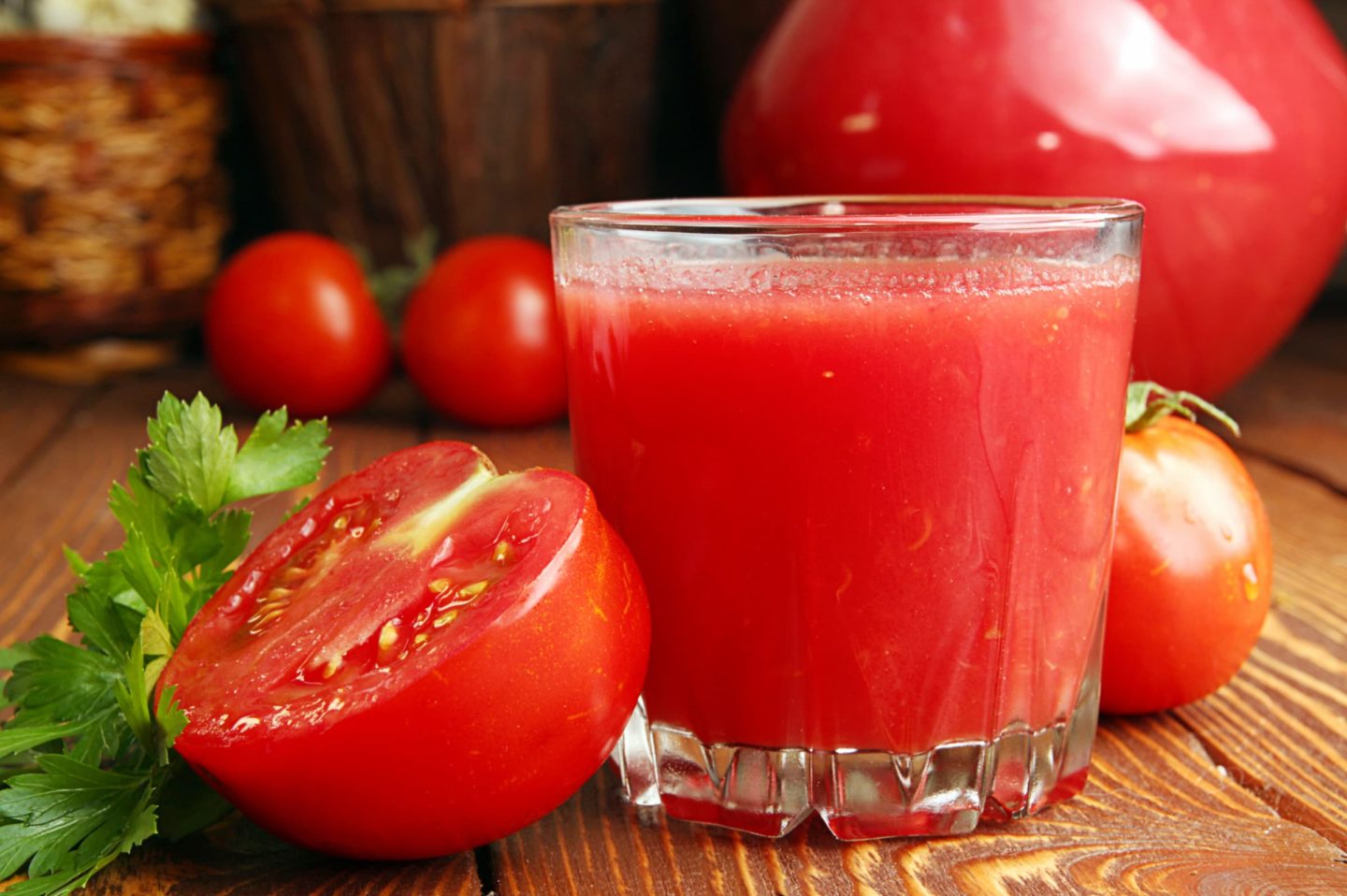
Minerals
| Minerals | Amount | Description |
| Calcium | 22.68 mg (2% DV) | The most abundant mineral in the body, and it is vital for bone health. |
| Copper | 0.095 mg (11% DV) | It helps maintain healthy bones, blood vessels, nerves, and immune function, and it contributes to iron absorption. |
| Iron | 0.88 mg (5% DV) | It is part of hemoglobin, a protein that carries oxygen from our lungs throughout our bodies. |
| Magnesium | 24.95 mg (6% DV) | It is necessary for energy synthesis, oxidative phosphorylation, and maintaining blood sugar levels. |
| Phosphorus | 43.09 mg (6% DV) | Like calcium, it is required for developing strong, healthy bones as well as keeping other body organs healthy. |
| Potassium | 492.16 mg (10% DV) | It is a part of the electrolyte panel that maintains nerve health and muscle contraction. It is also important for blood pressure levels. |
| Selenium | 1.1 mcg (2% DV) | It is an essential component for thyroid hormone metabolism and DNA synthesis, and safeguards the body from oxidative stress. |
| Sodium | 573.8 mg (25% DV) | It is a vital electrolyte that keeps the water balance in and around your cells in check. |
| Zinc | 0.25 mg (2% DV) | It is a mineral that is found throughout your body and aids in the proper functioning of your immune system and metabolism. |
Moreover, tomatoes contain a great number of phytonutrients like phenolic compounds and flavonoids, which act as anti-inflammatory particles that prevent damage in our cells. In turn, when taken on a daily basis, there is decreased risk for tissue damage and diseases.
2. Supports Cancer Prevention
Tomatoes have been well known to be "good for the heart" due to their high lycopene content. But you may wonder if there is any truth to this claim, or how it actually works.
According to the Journal of Pharmacy & Allied Bioallied Sciences, "Lycopene quenches singlet oxygen, scavenges free radicals, and prevents the oxidative damage of DNA. Thus, it prevents the potential transformation of normal cells to cancer cells."
They further revealed that lycopene helps in expelling cancer cells from the body, prevents cancer cells from growing and infecting other healthy tissues, and stimulates the production of healthy cells while protecting them from damage and inflammation. It is believed that lycopene does not convert to vitamin A like most carotenoids, causing its antioxidant effects against cancer to be more enhanced. And true enough, a handful of studies have proven this claim.
For instance, a study recommended the usage of lycopene for prostate cancer therapy. The article presented lycopene as an inhibitor for cancer cell production and promotes cancer cell death.
Another study confirmed the anti-cancer effects of lycopene and carotenoids, which are both present in significant amounts in tomatoes. The study was performed on breast cancer cells. It concluded that carotenoids prevented cell regeneration and increased damage to cancer cells. Some studies also promote fresh tomato juice for colorectal cancer prevention.
Overall, there are a handful of studies that support the claims of tomato as an anti-cancer agent. Due to its high content of lycopene, carotenoids, and flavonoids, tomatoes are the go-to drink when treating or wanting to prevent cancer.
3. Supports Heart Health
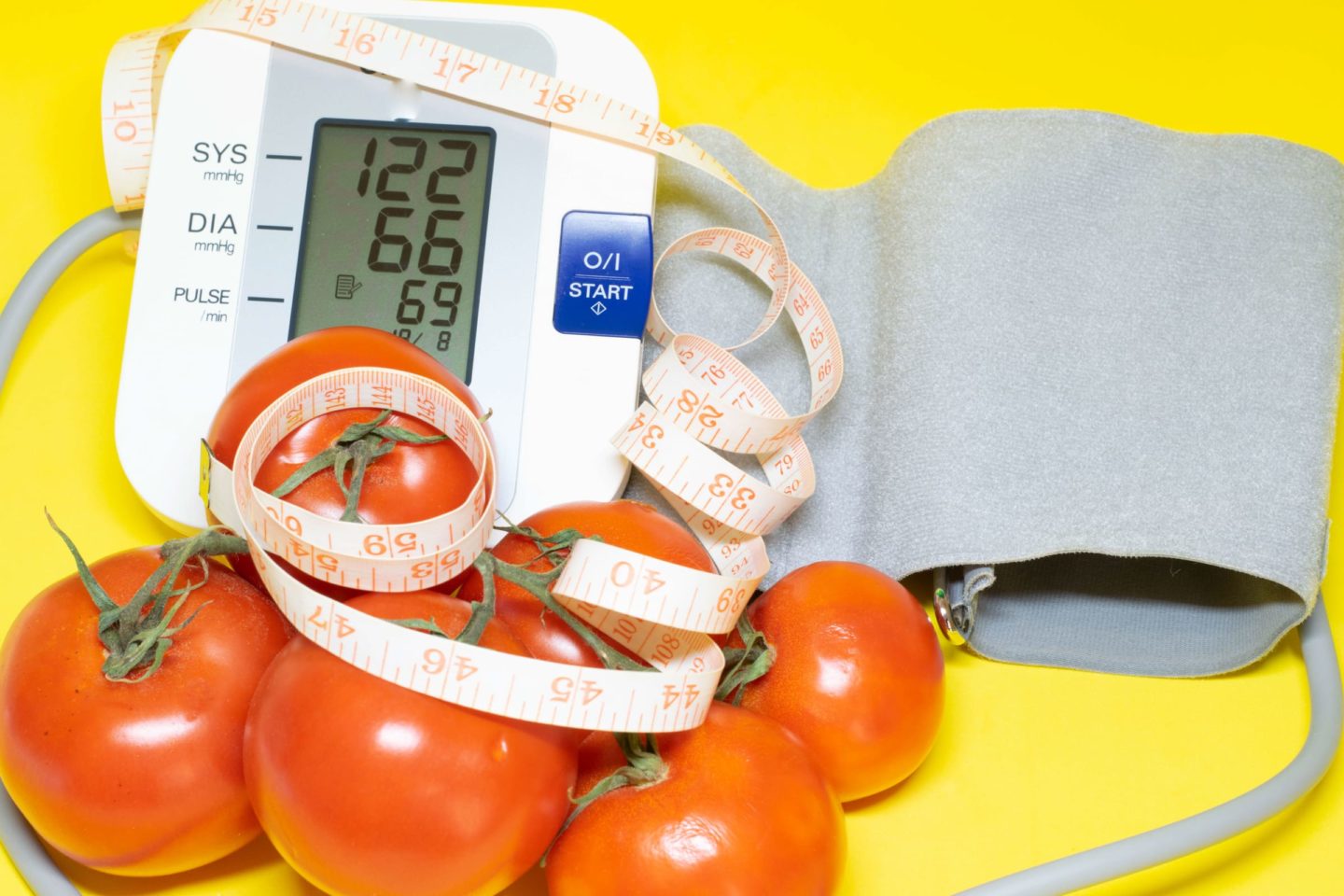
Cardiovascular diseases (CVD) are the main cause of death worldwide, and preventative actions to prevent them should be prioritized. Atherosclerosis is the most common symptom of CVD, and its progression might be clinically quiet for a long time, up until a point when it directly causes a major adverse event.
Aside from its preventive effects on cancer, tomatoes are great for your heart, too! In fact, whenever companies try to advertise a tomato paste or sauce, they would always claim that their products prevent any heart disease.
This is mostly because of the tomato's lycopene content, and its ability to lower low-density lipoprotein, also known as your bad cholesterol (LDL cholesterol). This protein, unlike other proteins that offer beneficial effects to the human body, causes danger when at elevated levels. They form a clot and adhere to the blood vessels, causing wall thickening and increased blood pressure, also known as atherosclerosis.
And unlike other claims with no solid scientific proof, tomatoes are one of the few well-studied vegetables against heart disease. According to this study, there is a link between decreased blood pressure and uric acid levels with an increased intake of lycopene found in fresh tomato juice among obese or overweight individuals.
Another study revealed that drinking tomato juice helps the blood vessels relax, providing room for blood to flow, causing a decrease in blood pressure.
It is proven that taking more than 7 servings of tomato products can lower the risk of CVD by 30%. Isn't that amazing?
4. Supports Liver Health
Now that we're done with the heart, let's move on to the tomato's effects on one of the most abused organs of the body — the liver.
In this section, we will focus more on the effect of drinking tomato juice on fatty liver. Fatty liver disease is a condition that occurs when the liver stores too much fat. The majority of people show no signs or symptoms, and it does not cause them any substantial issues. However, in some situations, it can result in liver damage. The good news is that lifestyle adjustments can typically prevent or even correct fatty liver disease, and tomatoes are here to help!
Although most of the benefits of tomatoes are linked to lycopene, it is important to note that tomatoes are also high in a variety of minerals and phytochemicals, such as carotenoids, polyphenols, folate, ascorbic acid, and alpha-tocopherol which helps in preventing cellular damage and is helpful in patients with alcoholic fatty liver while preventing further infections.
Moreover, according to a study, tomatoes are great for cleansing the liver from toxic metals, such as mercury, cadmium, and lead.
5. Supports Eye Health
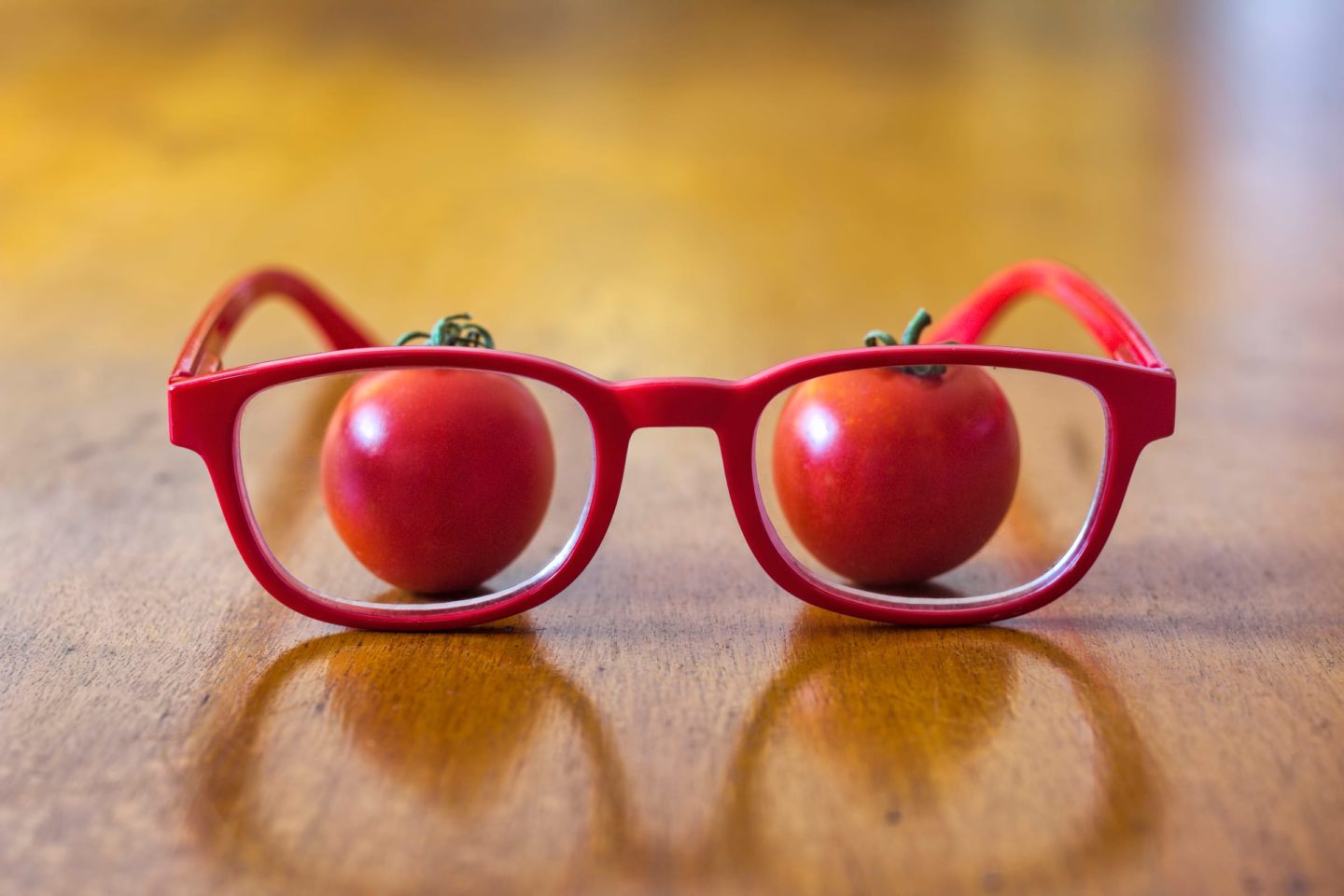
Whether it's our phones, laptops, desktops, or iPads, it is undeniable that we are ruining our eyes every day due to too much screen time. And sometimes, our vision starts to fog. That's our retinas slowly deteriorating.
But worry not, as these red, round treats do the trick! Tomatoes are high in carotenoids, such as lycopene, which contributes to their bright red color. According to studies, lycopene found in ocular tissues helps protect the retina and other parts of the eye from light-induced damage.
Tomatoes are also high in vitamin C, which is another eye-protector. Lycopene absorption can be improved by eating processed tomato products or raw tomatoes with a little olive oil. Health professionals also suggest that consuming foods rich in antioxidants are a better alternative for fixing night blindness than purchasing and drinking pills.
6. Supports Bone Health
What is it about tomatoes that scientists investigating the consequences of oxidative damage find so fascinating? Tomatoes are particularly abundant in lycopene, a bone-protective antioxidant. It's been known for a long time that persons who eat more tomatoes, tomato paste, sauces, juice, and tomato products of all kinds have a lower fracture rate than those who eat less.
According to this study performed on rats, those who were supplemented with tomato juice have shown preventive effects against bone loss. They stated that the effect was due to the tomato's ability to improve bone formation and lessen bone degradation. So whenever you feel like your legs don't feel like they used to before, grab your juicers and start juicing tomatoes!
7. Supports Skin Health
Our skin reflects how we take care of ourselves. Oftentimes, "skincare equals self-care". And since skincare products come with a price, tomatoes are here to save you money!
This tangy vegetable is not only nutrient-dense, but it also helps to repair and clarify the skin. Reduces the skin's surface area, limiting oil build-up and reducing the likelihood of blackheads and whiteheads.
It also possesses pore-shrinking effects that aid in skin tightening. As a result, tomatoes are a flexible and popular component for skin problems. Here are some fantastic tomato-based home treatments for treating a variety of skin issues.
All these skin benefits are due to its huge amounts of Vitamin C, which promotes collagen production that makes the skin look poreless and young, and gives the skin the barrier it needs against sun rays. Not only that, the antioxidants in tomatoes are a great way to remove skin impurities and prevent inflammation, which is helpful especially for people suffering from acne.
If you're wondering how to use tomato juice as a topical skin care product, here are a few tips for you!
Tomato Juice as a Facial Mask
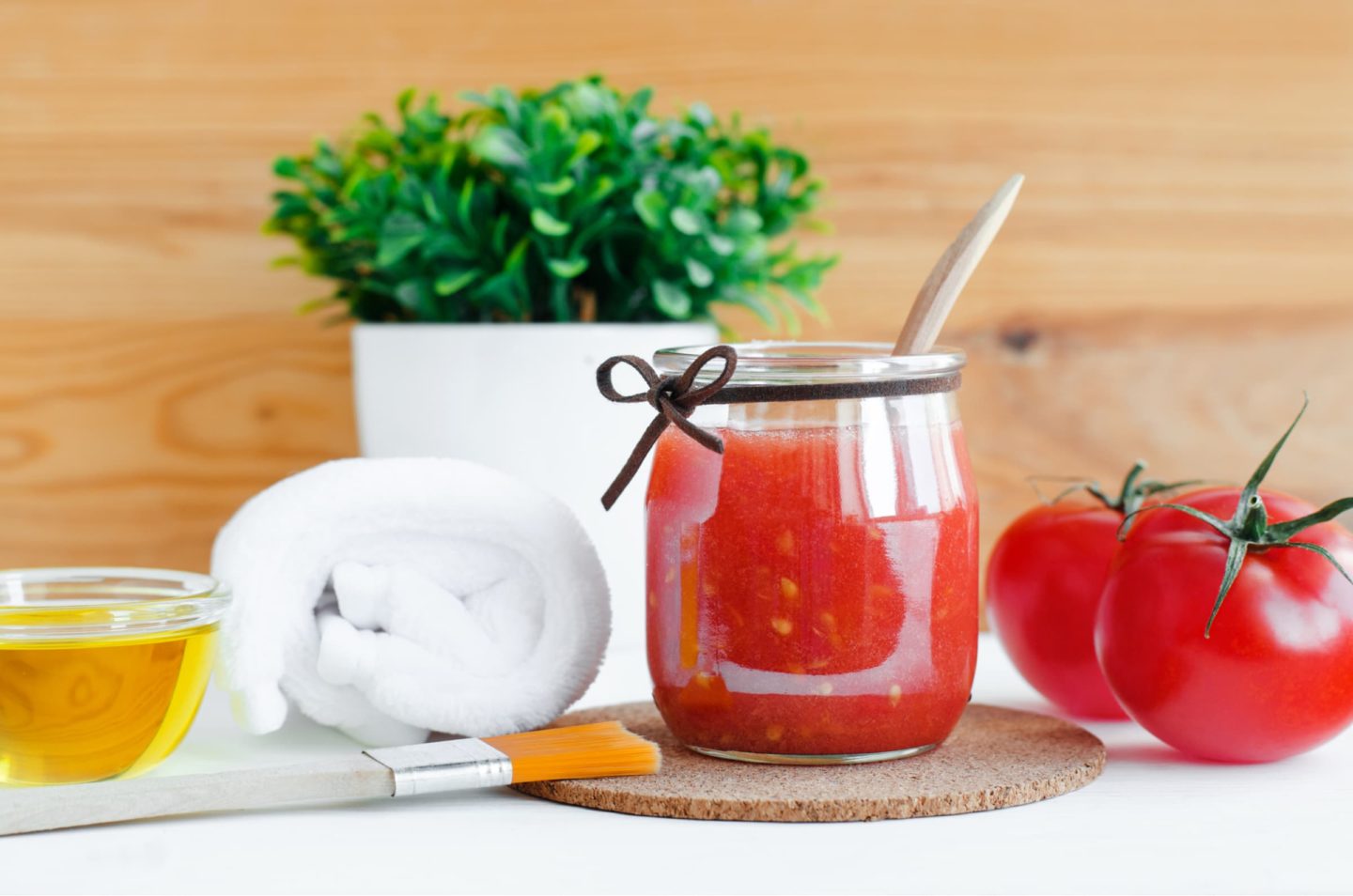
Facial masks are made to provide moisture to the skin and remove excess oils. They come in different forms and some even come in sheets infused with essence and nutrients.
For this usage, just pour some of your cold tomato juice into a clean bowl, and with your clean hands, start rubbing the juice on your clean face. Let it be absorbed by the skin and leave on for 5 minutes. A radiant, moisturized, and glowing skin will be revealed after washing your face with cold water.
Maintaining this will prevent the skin from producing too much oil as the skin will be moisturized, leaving it supple and soft.
Tomato as a Skin Lightener
Tomatoes are astringents that also help to liven up even the dullest of skins. To use tomato as a skin lightener, combine one tomato's pulp with two tablespoons of fuller's earth and one teaspoon of fresh mint paste.
Apply to clean skin and leave it on until dry before rinsing with cold water.
Not only will it make your skin look lighter, but it will also make you feel more energized and taut. This pack can be used every other day. It also aids in the removal of skin discoloration and the attainment of a more even complexion.
Tomato Juice as a Remedy for Sunburned Skin
Your skin will become dull, lifeless, and exhausted as a result of exposure to the sun. Tomatoes, on the other hand, can help you overcome sun-related skin problems. Tomatoes are high in a natural substance called vitamin B, C, and A, which not only makes the skin look younger and fairer but also helps to decrease the effects of sunburn.
To use, combine tomato juice and buttermilk in a bowl and apply to your skin. Allow it to rest for 10 to 15 minutes before washing it off with regular water.
8. Great Detoxifier
One of the health benefits of tomato juice is detoxification. It aids in the removal of waste products and toxins that have accumulated in the liver, intestines, and other areas of the body. In today's environment, regular exposure to pollutants in the air, food, and water adds to the weight of toxins in the body. The liver's primary function is to filter poisons and transfer them to the kidneys or intestines for elimination.
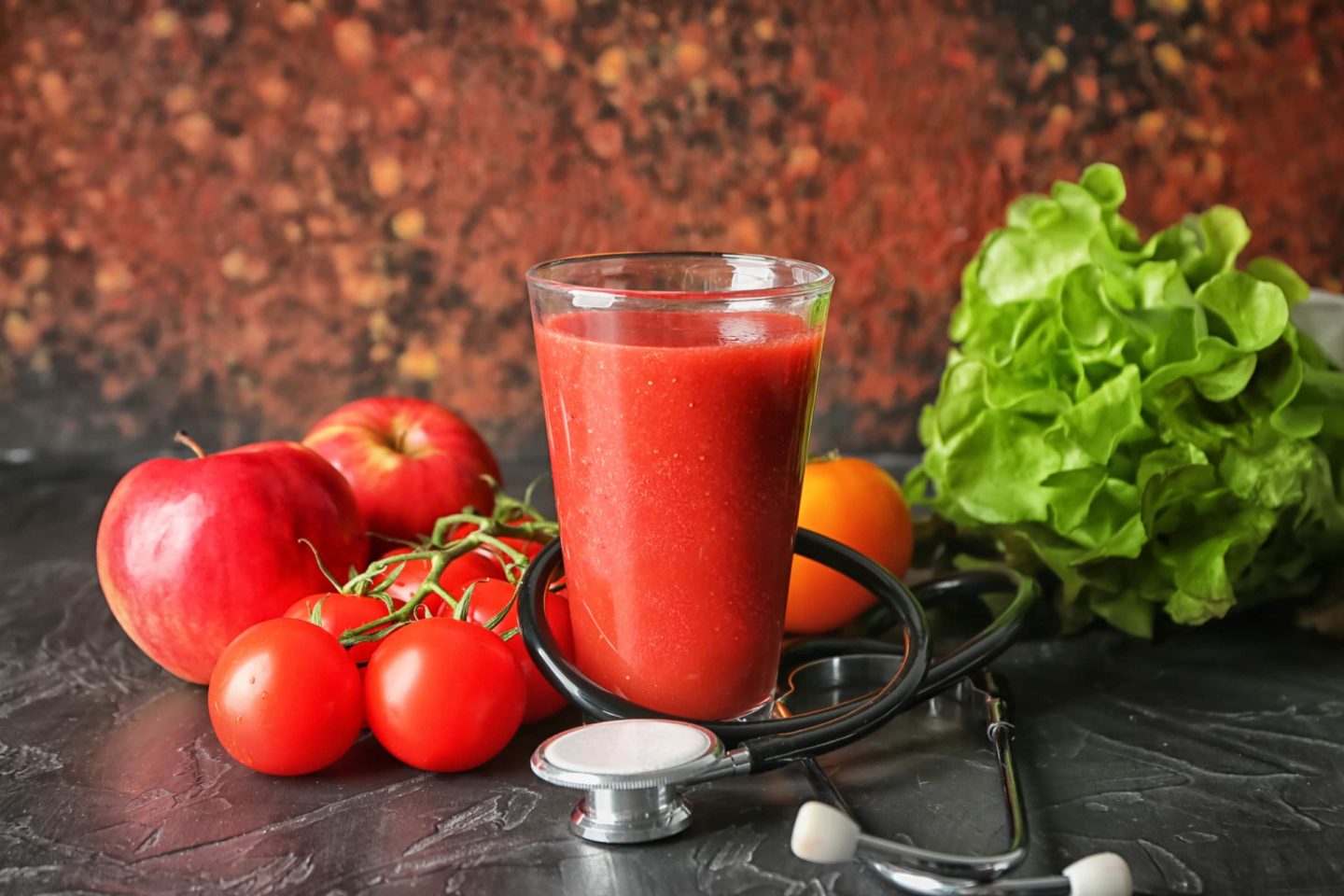
Factors that affect the liver's functions are inflammation and infections. The liver is responsible for making proteins. One of these proteins is the immunoglobulins, also known as antibodies, that fight off the inflammation that is caused by bacterial and viral infections. Once these infections are present, the liver works overtime to produce more protein, therefore slowing the cleansing and detoxifying process.
Luckily, tomatoes are rich in antioxidants that prevent oxidative stress and inflammation, and vitamins A, C, and E that boost immunity. Lycopene's antioxidants also shield the liver from free radical damage. This enables the liver to perform at its best, metabolizing and eliminating toxins from the body.
9. Regulates Digestion
Tomatoes are good for the digestive system because they prevent constipation and diarrhea. It also helps prevent jaundice and removes toxins from the body. Tomatoes also contain a lot of fiber, which helps to bulk up stool and relieve constipation symptoms. Fiber aids in the stimulation of digestion activity in the smooth digestive muscles, as well as the release of gastric and digestive fluids. This can improve your overall digestive health and help you avoid illnesses like colorectal cancer by regulating your bowel motions.
10. A Great Source of Energy
Do you ever feel tired and sleepy during the daytime? We have good news for you! Aside from all the health benefits we've already discussed, tomatoes are here to literally save your day!
Because they contain the amino acid tyramine, which stimulates the brain to function, they are known to help one stay up during the day and even at night! While this also means that you have to steer away from tomatoes if you have trouble sleeping at night, drinking tomato juice in the morning boosts your brain activity to refrain from having "energy gaps". So when you wake up in the morning and start yawning, that might be your body reminding you to take your tomato juice already.
11. Relieves Pain
Are you in pain? As we grow older, it's undeniable that our bodies are subject to deterioration and as a result, we might start to experience body pains every now and then.
While feeling pain is never normal and might be a sign of inflammation, it is sometimes a result of fatigue or sometimes of strenuous exercise. Nevertheless, the pain has to be addressed, and we've got the perfect tip for you that's one juicer away!
Tomatoes are rich in substances such as phenolics and antioxidants that prevent inflammation and cellular damage. In cases of strenuous exercises, our muscles undergo damage to a cellular level, causing pain. Drinking tomato juice as a part of your pre-workout routine not only provides you with the energy boost that you need but also helps with the soreness that we all hate.
12. Supports Weight Loss
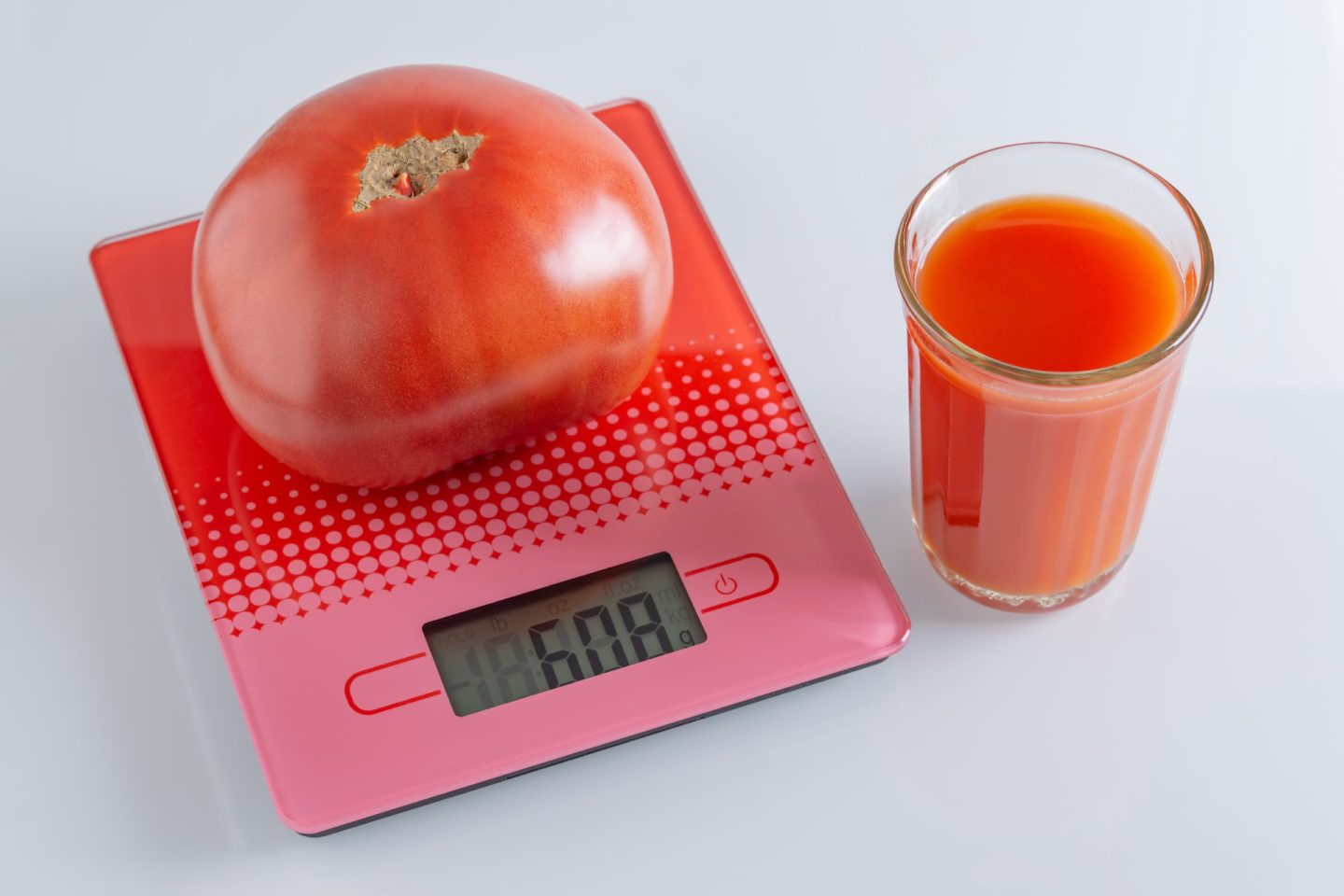
This lovely red fruit not only lends a tart flavor to a variety of dishes but also boasts a lot of health and cosmetic benefits. This vegetable juice is nutrient-dense as well as low in calories and fat. So, if you want to lose weight, this is the drink for you.
The fiber present in tomatoes, combined with its low levels of organic carbohydrates and sugars, will make you feel full for a longer period and you won't give in to your cravings easily. While keeping a calorie count required to your body weight is still the best advice, tomato juice might be a great help when you're trying to lose an extra pound off.
Risks
Now that we're done talking about the good parts, let's try to figure out if tomato juice still looks very much appealing from the other side.
As a "nightshade" plant, tomatoes are considered threatening at excessive levels. Nightshade plants in general are said to contain substances that might cause inflammation and allergic reactions. Here are the potential risks of drinking tomato juice.
Joint Pains
As discussed earlier, this vegetable juice lowers the risk of muscle soreness after strenuous exercise. But it is vital to note that tomatoes also contain a substance called Solanine that in excess levels, may cause irritation in the tissues that causes inflammation.
Although our bodies have a natural way of expelling solanine from our bodies, it is still important to prevent excessive intakes of food that are rich in it for safety.
Allergic Reactions
Tomatoes contain a substance called histamine, which can cause skin rashes or allergic responses. As a result, if you are allergic to tomatoes, you may have swelling in your mouth, tongue, and face, as well as sneezing and throat infections. Tomatoes, on the other hand, can induce allergic contact dermatitis. If you are allergic to the fruit, simply touching it causes your skin to become extremely irritated and inflamed.
Acid Reflux
Tomatoes, as you may know, are acidic by nature. As a result of the excess gastric acid, you may get heartburn or acid reflux after eating too many tomatoes. If you have digestive problems or signs of GERD (gastroesophageal reflux disease), tomatoes should be avoided.
Risk for Kidney Diseases
According to the US Department of Health and Human Services, persons with advanced chronic kidney disease should reduce their potassium consumption, which tomatoes are high in. In addition, excessive quantities of oxalate, when consumed in excess, might cause kidney problems. So before planning to go on a homemade tomato juice consumption, please visit your doctor.
Top Tomato Juice Recipes
Homemade Tomato Juice
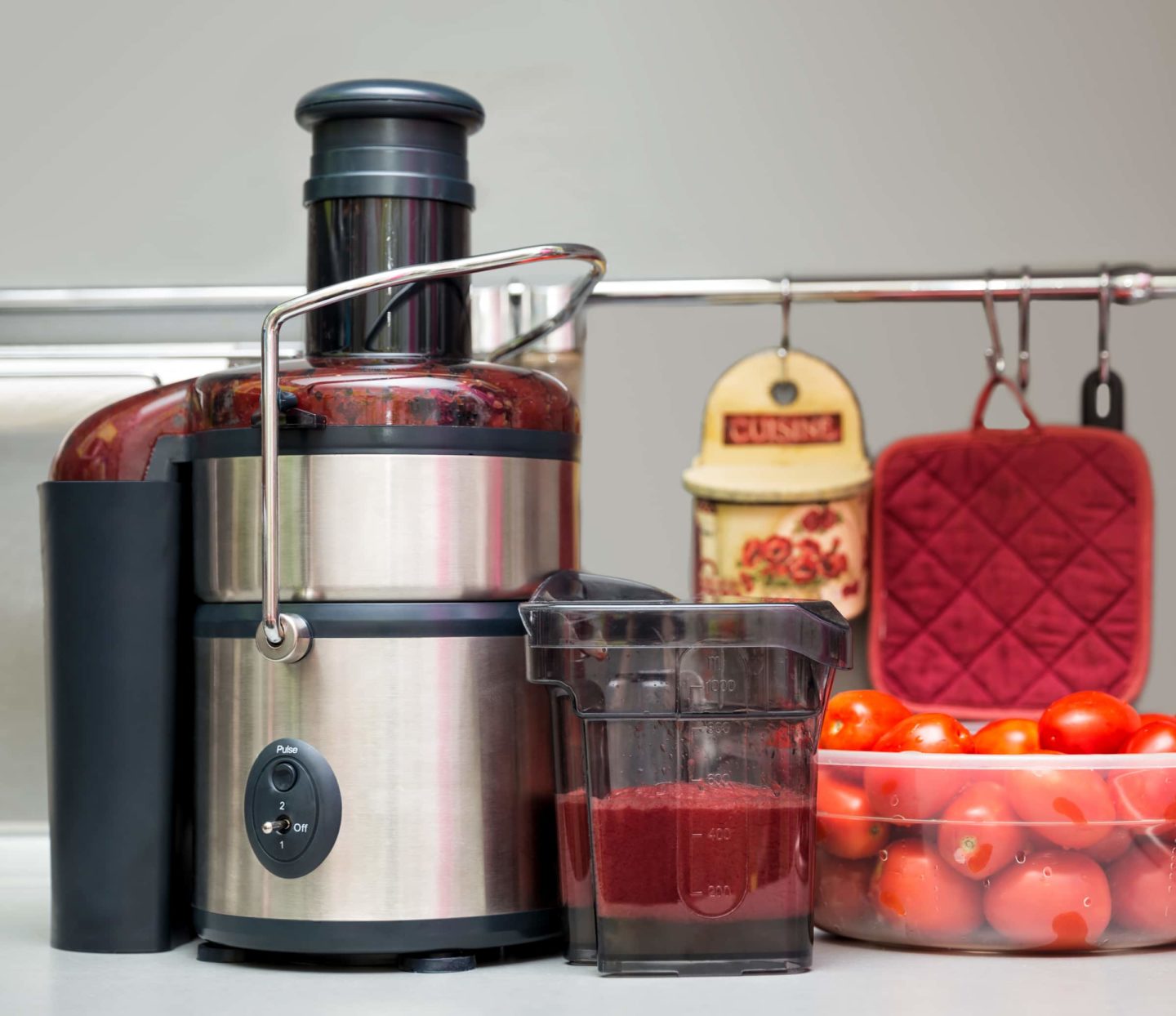
While there are hundreds of commercially available tomato juices, homemade tomato juice has been proven to be more beneficial. So here's a quick guide on how to make your own tomato juice using both the juicer and blender.
Ingredients:
- 1 pound of fresh tomatoes (yields about 360 mL of juice)
Preparation::
- Wash the tomatoes and pat them dry.
For juicer method:
This method is the simplest of them all and requires no manual squeezing.
- Chop the tomatoes, so they fit through the chute of your juicer.
- Slowly feed them into the juicer – voila! The juicer will automatically remove the skin and seeds from the juice.
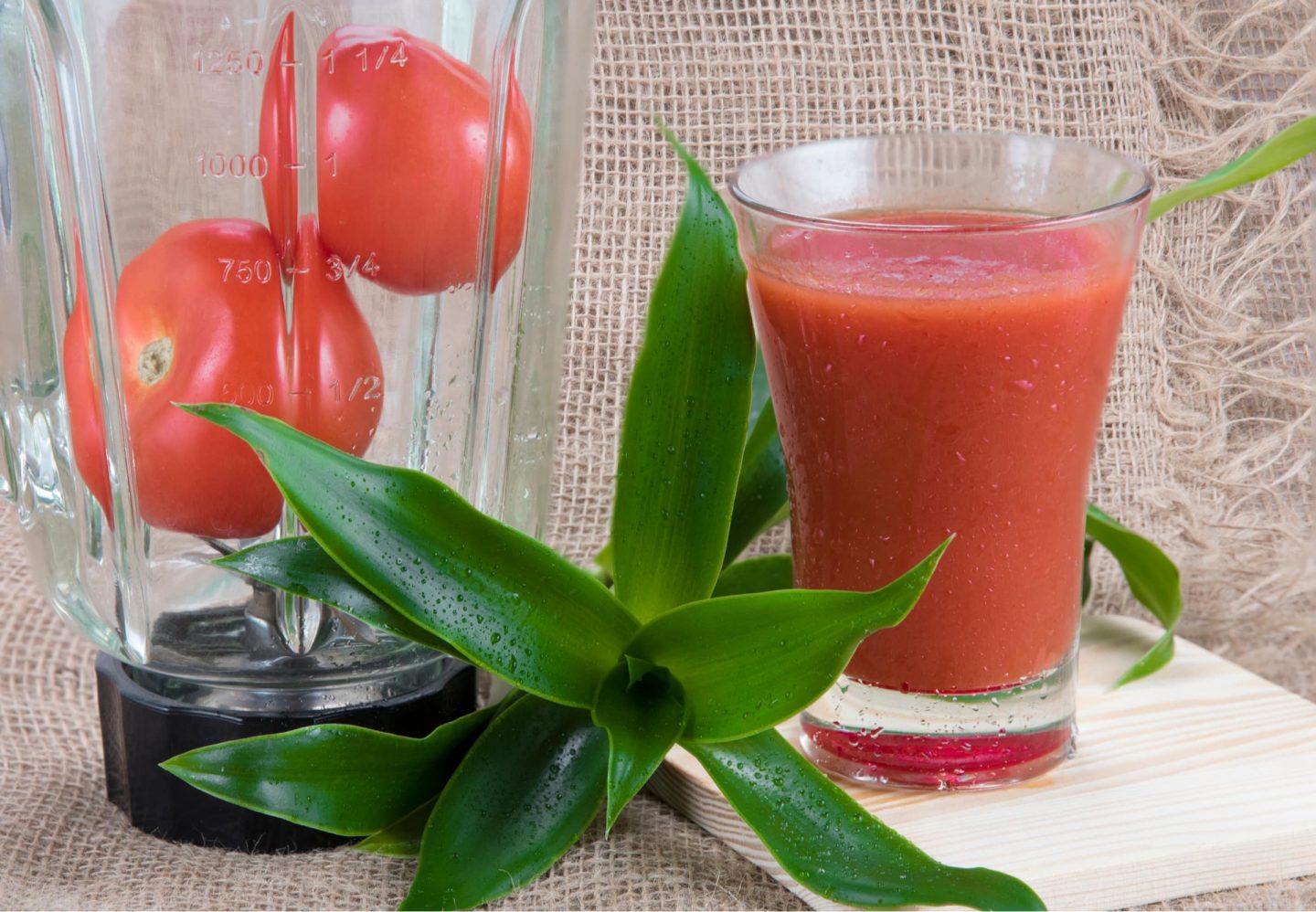
For blender method:
- Chop the tomatoes into rough pieces.
- Blend until the mixture is juice-like and smooth – this may take a couple of minutes to properly break down.
- Place a large nut milk bag or layers of cheesecloth inside a large bowl (alternatively, use a sieve) and pour the tomato mixture from the blender into it. Lift the bag/cheesecloth up and allow it to drain naturally. Then, using your hands, squeeze the leftover pulp to remove as much juice as possible.
Recipe source: Alpha Foodie
Note that unsalted tomato juice is the healthier choice as tomatoes already contain high amounts of sodium.
Tomato Juice Cocktail
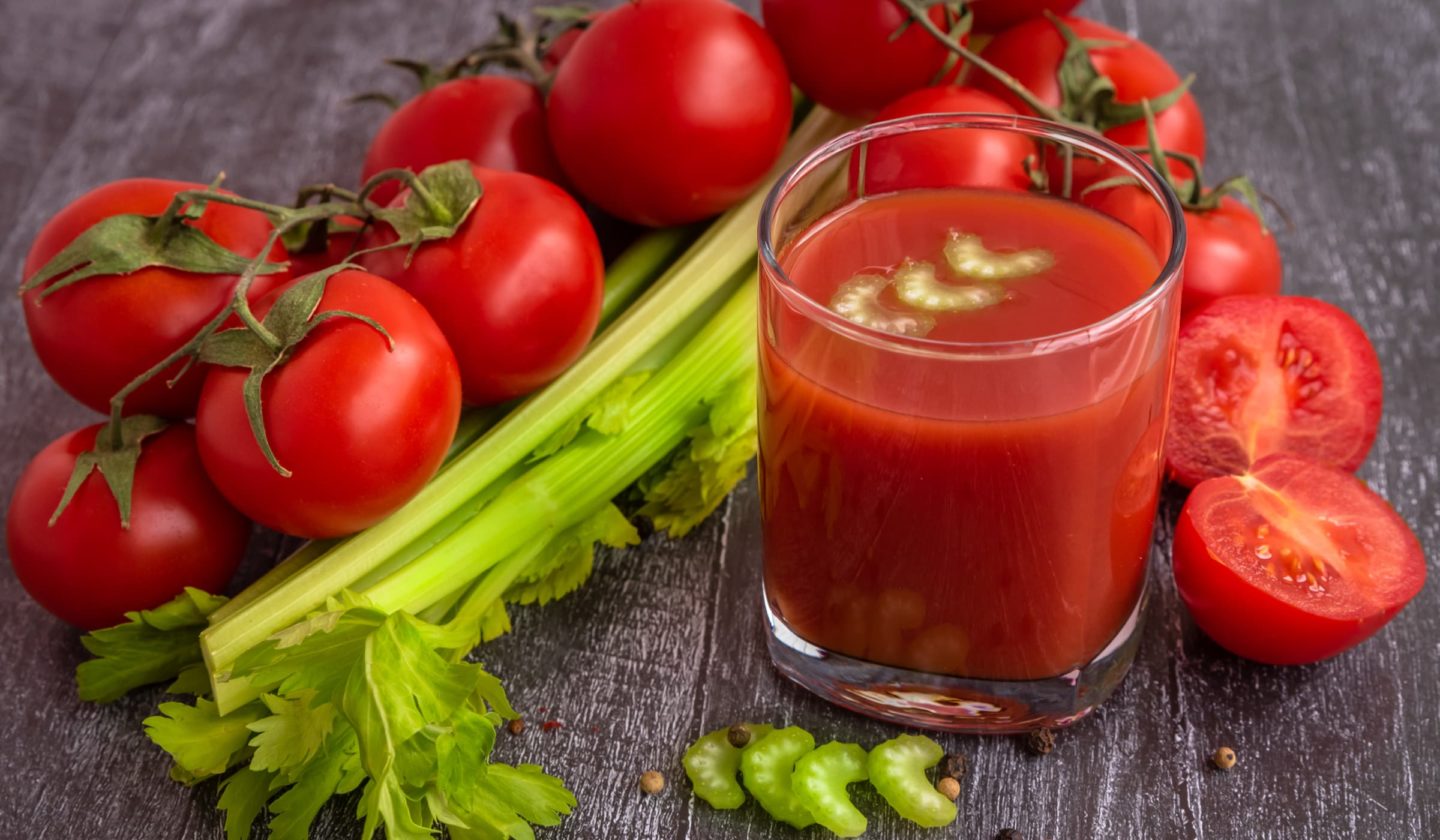
Ingredients:
- ¾ pound ripe tomato (about 4 small), sliced
- ⅓ cup chopped onion
- ¼ cup coarsely chopped green pepper
- ¼ cup water
- 2 tablespoons sliced celery
- 1-½ teaspoons sugar
- ½ teaspoon salt
- ⅛ teaspoon pepper
Directions:
- In a small saucepan, combine all ingredients. Bring to a boil. Reduce heat; cover and simmer until vegetables are tender, 30-35 minutes. Cool.
- Transfer tomato mixture to a blender; cover and process until smooth. Refrigerate until chilled.
Recipe Source: Taste of Home
Apple, Tomato, and Carrot Juice Recipe
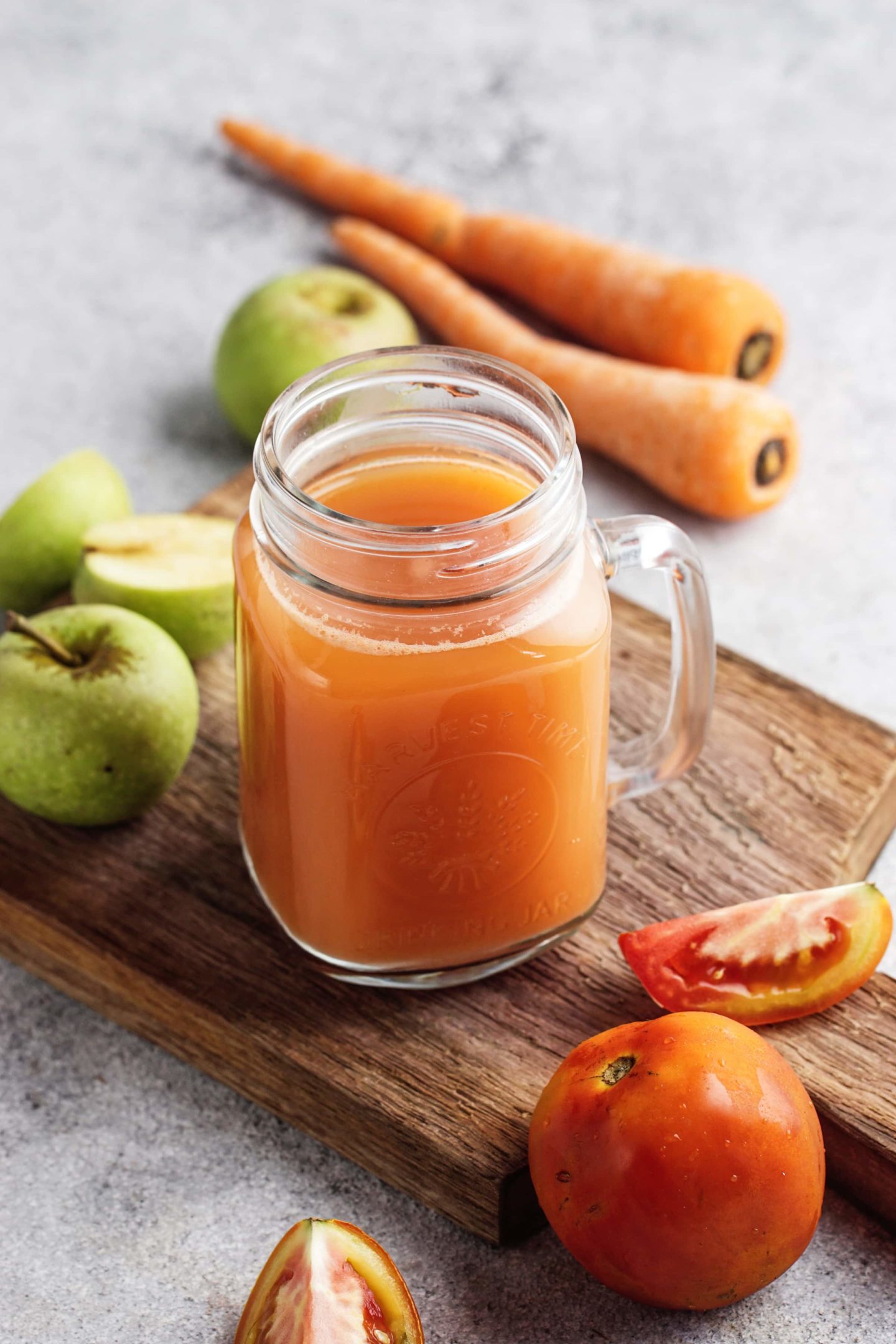
Ingredients:
- 1 Apple
- 2 Carrots
- 2 - 4 small to medium ripe tomatoes (vine-ripened and depending on size)
- 1 celery stalks
- ¼ teaspoon turmeric
- Ice optional
Directions:
- Chop apple, tomatoes, carrots, celery into small pieces.
- Place ingredients in a juicer.
- Serve immediately
Recipe source: Caribbean Green Living
Tomato Watermelon Cooler
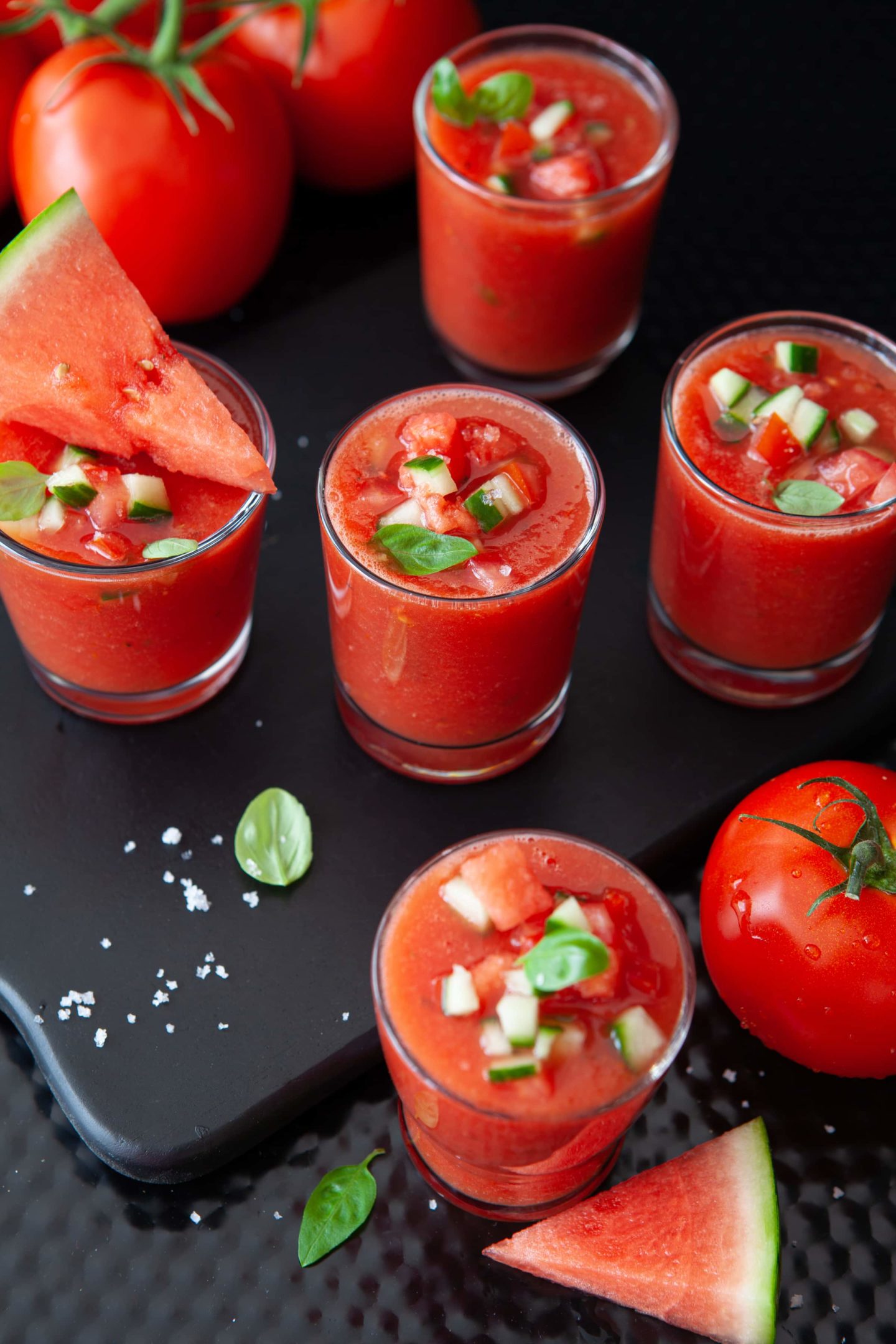
Ingredients:
- ½ small watermelon
- 2 medium tomatoes
Directions:
- Chop the watermelon into small pieces.
- Chop tomatoes into small pieces.
- Place the fruit in the juicer.
- Serve immediately.
Recipe Source: BGC

Leave a Reply